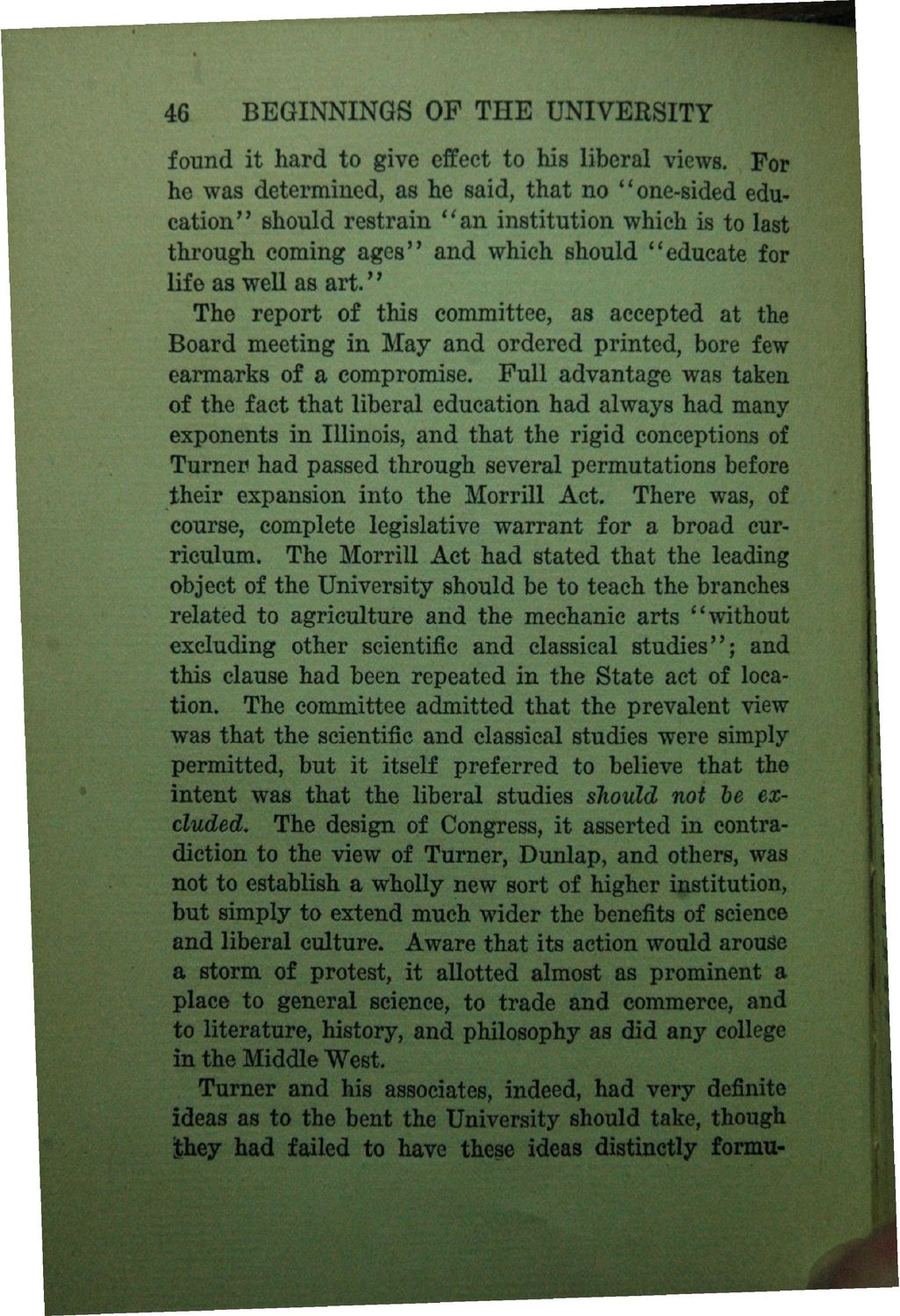| |
| |
Caption: Book - History of the University (Nevins)
This is a reduced-resolution page image for fast online browsing.

EXTRACTED TEXT FROM PAGE:
46 BEGINNINGS OP THE UNIVERSITY found it hard to give effect to his liberal views. For he was determined, as he said, that no "one-sided education" should restrain "an institution which is to last through coming ages'' and which should "educate for life as well as art.'' The report of this committee, as accepted at the Board meeting in May and ordered printed, bore few earmarks of a compromise. Full advantage was taken of the fact that liberal education had always had many exponents in Illinois, and that the rigid conceptions of Turner had passed through several permutations before their expansion into the Morrill Act. There was, of course, complete legislative warrant for a broad curriculum. The Morrill Act had stated that the leading object of the University should be to teach the branches related to agriculture and the mechanic arts "without excluding other scientific and classical studies"; and this clause had been repeated in the State act of location. The committee admitted that the prevalent view was that the scientific and classical studies were simply permitted, but it itself preferred to believe that the intent was that the liberal studies should not be excluded. The design of Congress, it asserted in contradiction to the view of Turner, Dunlap, and others, was not to establish a wholly new sort of higher institution, but simply to extend much wider the benefits of science and liberal culture. Aware that its action would arouse a storm of protest, it allotted almost as prominent a place to general science, to trade and commerce, and to literature, history, and philosophy as did any college in the Middle West. Turner and his associates, indeed, had very definite ideas as to the bent the University should take, though ihey had failed to have these ideas distinctly formu-
| |